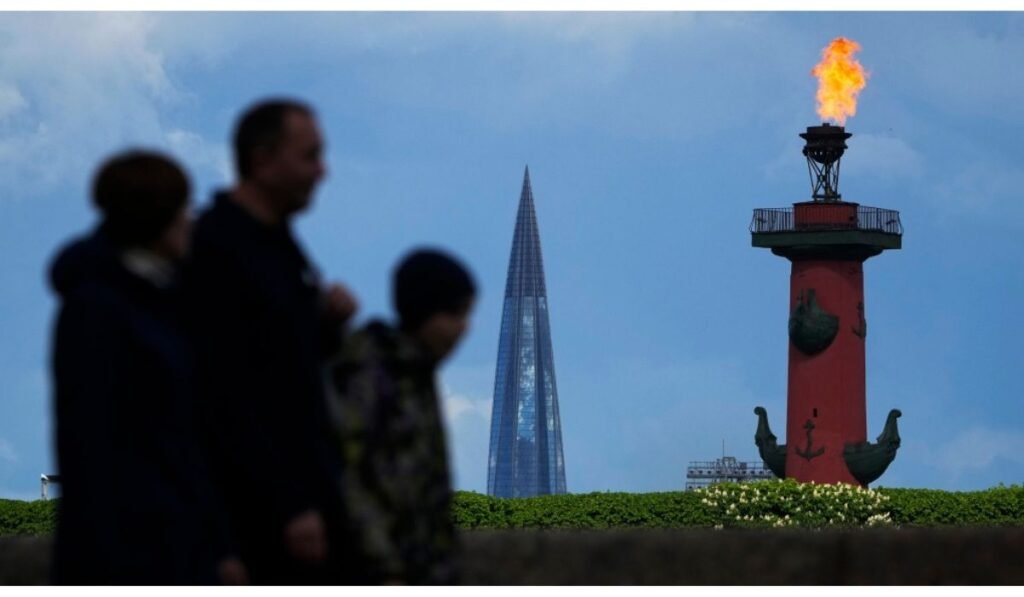VIENNA (AP) — Russia’s state-owned gas company Gazprom will enforce a gas cutoff to Austria’s OMV utility early Saturday, according to Austria’s chancellor. He emphasized that Austria’s underground gas storage remains full. The country, he noted, has secured alternative, non-Russian sources to maintain energy stability. #GazpromGasCutoff
This follows OMV’s decision to stop paying Gazprom for gas to its Austrian branch. The move comes as OMV won a 230 million-euro ($242 million) arbitration award related to an earlier gas cutoff affecting its German subsidiary.
Chancellor Karl Nehammer stated Friday that Austria has secure alternative fuel sources. He assured that “no one will freeze this winter, no home will be cold.”
“Our gas storage facilities are full and we have sufficient capacity to obtain gas from other regions,” Nehammer said in a hastily called appearance at the chancellery. “We cannot be blackmailed.”
OMV announced the gas cutoff in a trading statement on the Central European Gas Hub website. An OMV spokesperson was unavailable for comment, and Gazprom also had no immediate response.
In 2022, Russia cut off most natural gas supplies to Europe, citing disputes over ruble payments. European leaders saw this as energy blackmail due to their support for Ukraine against Russia’s invasion. The supply disruption caused gas prices to soar and drove inflation to double digits in October 2022, which has since eased.
European governments rushed to secure alternative supplies, often at higher prices. Much of the replacement came as liquefied natural gas shipped from the U.S. and Qatar. However, Austria, Slovakia, and Hungary still receive Russian gas through a Ukrainian pipeline. Ukraine has announced it will stop gas transit after Jan. 1, forcing those nations to seek new suppliers. In December 2023, Austria relied on Russia for up to 98% of its gas, according to Energy Minister Leonore Gewessler.
The European Union has stopped most imports of Russian oil but hasn’t imposed direct sanctions on Russian gas. Instead, it set a nonbinding target for member countries to end Russian gas imports by 2027. Oil and gas exports remain the Kremlin’s primary source of revenue.
Austria was the first Western European country to start importing gas from the Soviet Union in 1968. Over the years, its reliance on Russian energy has grown. During President Vladimir Putin’s visit to Austria in 2018, Gazprom’s Alexey Miller and OMV’s then-chairman Rainer Seele signed a deal extending gas supplies until 2040. The agreement requires Austria to pay for gas even if it’s not delivered.
Energy Minister Leonore Gewessler has assembled a commission to investigate the circumstances of the contract. She is also exploring legal options to terminate the agreement. #GazpromGasCutoff
Despite the Gazprom gas cutoff, Austria claims underground storage is full, ensuring households remain warm. Additionally, Energy Minister Leonore Gewessler emphasized the country’s readiness to face this situation. Austria’s strategy includes enhancing non-Russian energy imports to safeguard against future disruptions.








